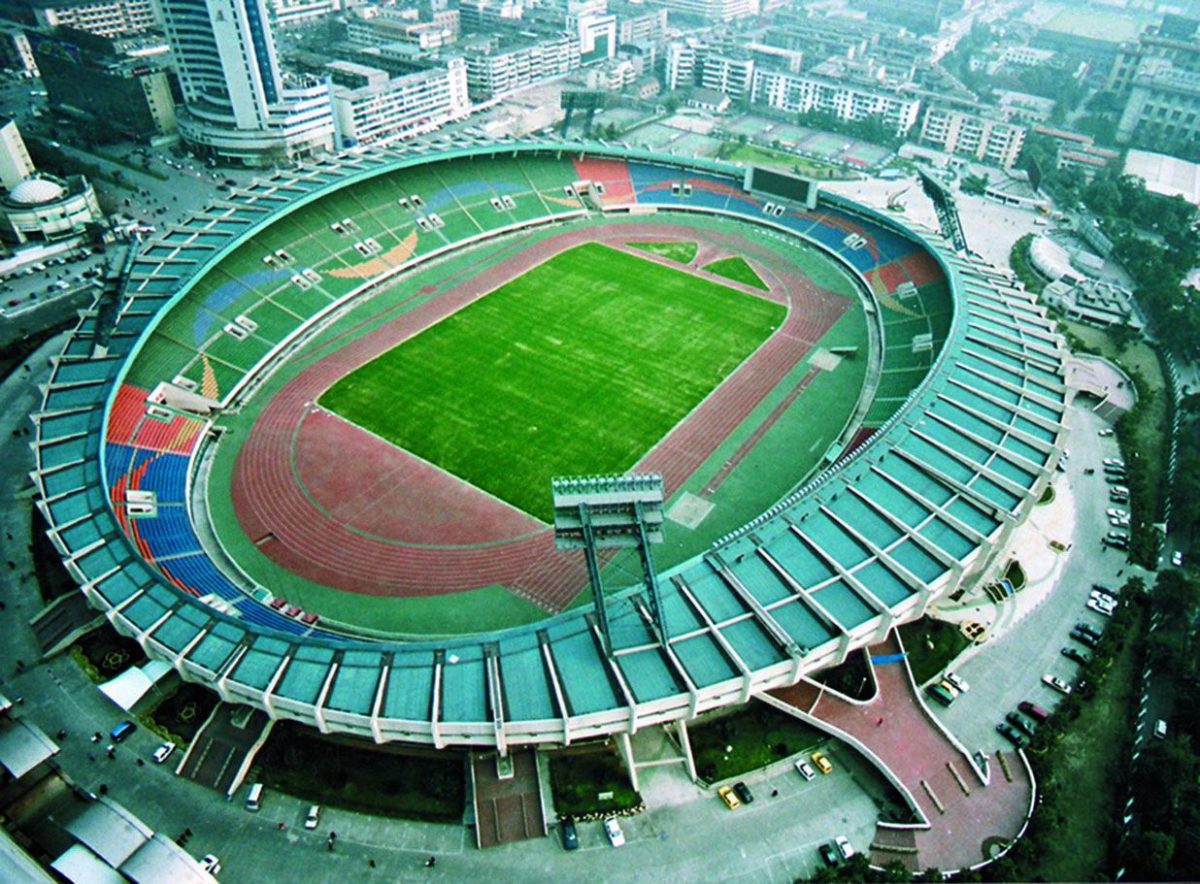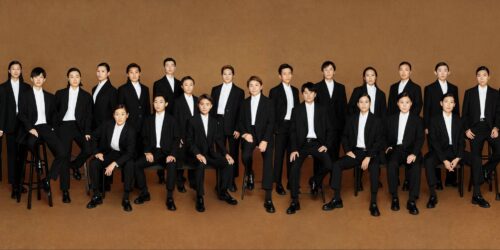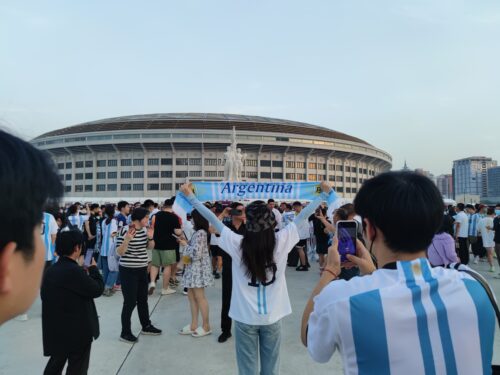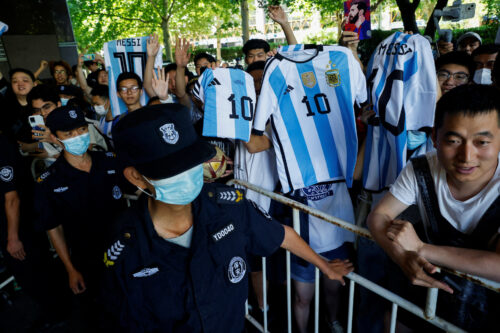First there was panda diplomacy — now could there be panda Olympics?
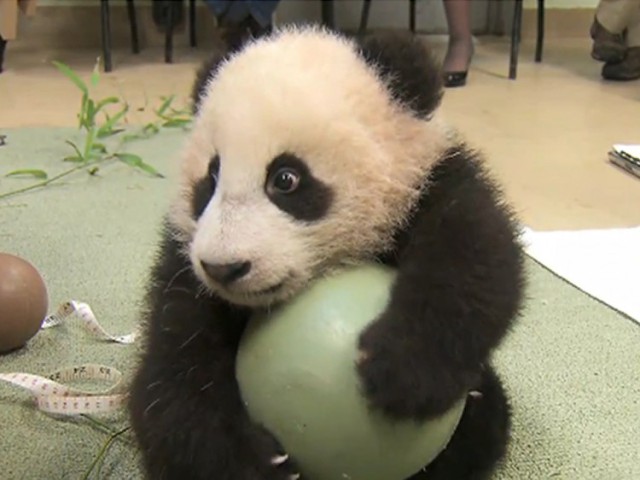
The China Sports Column is a The China Project weekly feature in which China Sports Insider Mark Dreyer looks at the week that was in the China sports world.
While most of the talk about the Olympics returning to China has centered on the 2022 Winter Games, it turns out the Summer Olympics may also be coming back to China, too.
As incredible as that sounds, lawmakers in Chengdu — which one forecast says will among the world’s top 30 cities by 2035 — have targeted hosting the 2036 Olympics.
Ahead of the more famous national “Two Sessions” held each year in Beijing, cities around the country hold their own local editions, in part to figure out what proposals can be submitted to the main political council in the capital.
Pu Hu, a member of the CPPCC Chengdu Committee, has now submitted a proposal which calls for the city — perhaps best known for its love of pandas — to bid for the 2036 Olympic Games.
His reasoning is that many Chinese cities will be capable of hosting the Games 20 years from now, so Chengdu can position itself at the head of the line by taking the lead now. None of China’s central and western cities have previously held large-scale international sporting events of this type, Pu notes.
A somewhat saner voice comes from Pu’s female colleague, Deng Juqiu, who, while agreeing an Olympics would benefit Chengdu, called for further feasibility studies.
But it’s not just Chengdu that is considering a bid.
While most had assumed that Shanghai would take the reins if China was to ever launch another Summer Games bid, this WeChat article not only discusses how officials in Guangzhou have been weighing up a run at 2032, but that the city of Zhengzhou — in the news recently due to its copycat Bird’s Nest stadium — has also expressed interest in hosting the Olympics.
While this may well lead to nothing, two points are worth making: first, that China’s appetite for staging large, international sporting events won’t even begin to be sated until the FIFA World Cup arrives on these shores; and, second, that China is still seen as a potential “savior” by many of the big sports organizations, especially the IOC.
2022, remember, was the Olympics that no one wanted due to profitability concerns, while Paris and Los Angeles have been awarded 2024 and 2028, respectively — ostensibly because the IOC couldn’t afford to turn down a major city that actually wanted to host a Games.
It’s very possible, then, that business could return to normal for 2032 and beyond, i.e., no cities submit bids. If that is the case, expect the first call the IOC makes to be to Xi Jinping, who presumably will still be in power.


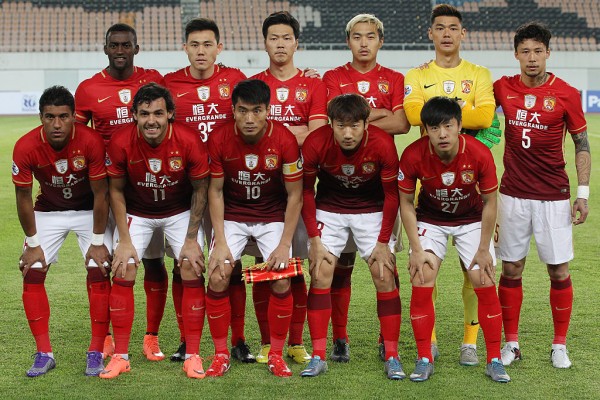
The Chinese Super League (CSL) kicks off this weekend and, for once, Guangzhou Evergrande may not have it all their own way.
While Evergrande have won the league for the past seven seasons by an average of nearly eight points, finishing six points ahead of nearest challengers Shanghai SIPG last year, there are signs that the perennial champions’ reign could end soon.
While most of the potential challengers have re-tooled their sides for a run at the title, Evergrande did little in the transfer market and are still coming to terms with losing star midfielder Paulinho to Barcelona in the middle of last season.
However, a new policy designed to promote young domestic players — under which CSL teams must feature as many U23 Chinese players as foreigners in any single game (up to a maximum of three international players), with at least one U23 in the starting XI — could prove to be Evergrande’s Achilles heel.
While all CSL teams will suffer from having to field youngsters who wouldn’t otherwise be on the pitch, Evergrande coach Fabio Cannavaro has admitted he is already struggling to figure out how best to use his players. As happened last season, when one U23 player was mandated to start, you can expect to see the starting youngster substituted early in certain games, with managers now likely to bring on the other two U23 players in the closing stages.
Not only will the weakened squads bring more unpredictability to matches, but badly timed injuries could play havoc with the most carefully thought-out strategies.
Meanwhile, off the pitch, Wanda’s Wang Jianlin has made yet another big splash in the sports world.
After selling Wanda’s stake in Atletico Madrid and reinvesting in the newly promoted CSL franchise in Dalian, Wang then immediately turned up the heat with an audacious bid for Atletico duo Yannick Carrasco and Nico Gaitan for a combined 48 million euros ($59 million, which is due to be doubled to 96 million euros [$118 million] due to the CSL’s new 100 percent transfer tax levied on all foreign players who cost more than 45 million RMB [$7 million], although these deals are still under review by the CFA).
Carrasco, in particular, is some player. The 24-year-old player became the first Belgian to score in a European Cup final when equalizing against Real Madrid in the 2016 Champions League final, but he has somehow found his way to Dalian despite much larger bids reportedly being made by European clubs — no doubt thanks to Wang’s magical deal making behind the scenes.
Elsewhere, Beijing Guoan finally unveiled Cedric Bakambu after one of the most protracted transfer sagas in recent memory, paying a total of 80 million euros ($98 million, if, as has been claimed by the club, all the transfer taxes have now been paid to the CFA, although this BBC piece suggests that Guoan were able to negotiate a small discount on the tax).
With those deals completed in the past few days, the final week of the transfer window has made a mockery of headlines that claimed the new 100 percent transfer tax had stopped CSL spending in its tracks.
As usual, Wang, who bankrolled Dalian Wanda to four Jia-A League titles in five seasons between 1994 and 1998, has set the tone. While clubs initially looked to find ways around paying the transfer tax, clarification — and the threat of punishment — from the CFA appears to have largely done the trick, with teams now accepting that they will have to pay double for foreign players.
We may not quite see a return to the heady days of the past few years, but at the very least, expect Wang to go shopping once the transfer window opens again in the summer.
The China Sports Column runs every Friday on The China Project. Follow Mark Dreyer @DreyerChina.
